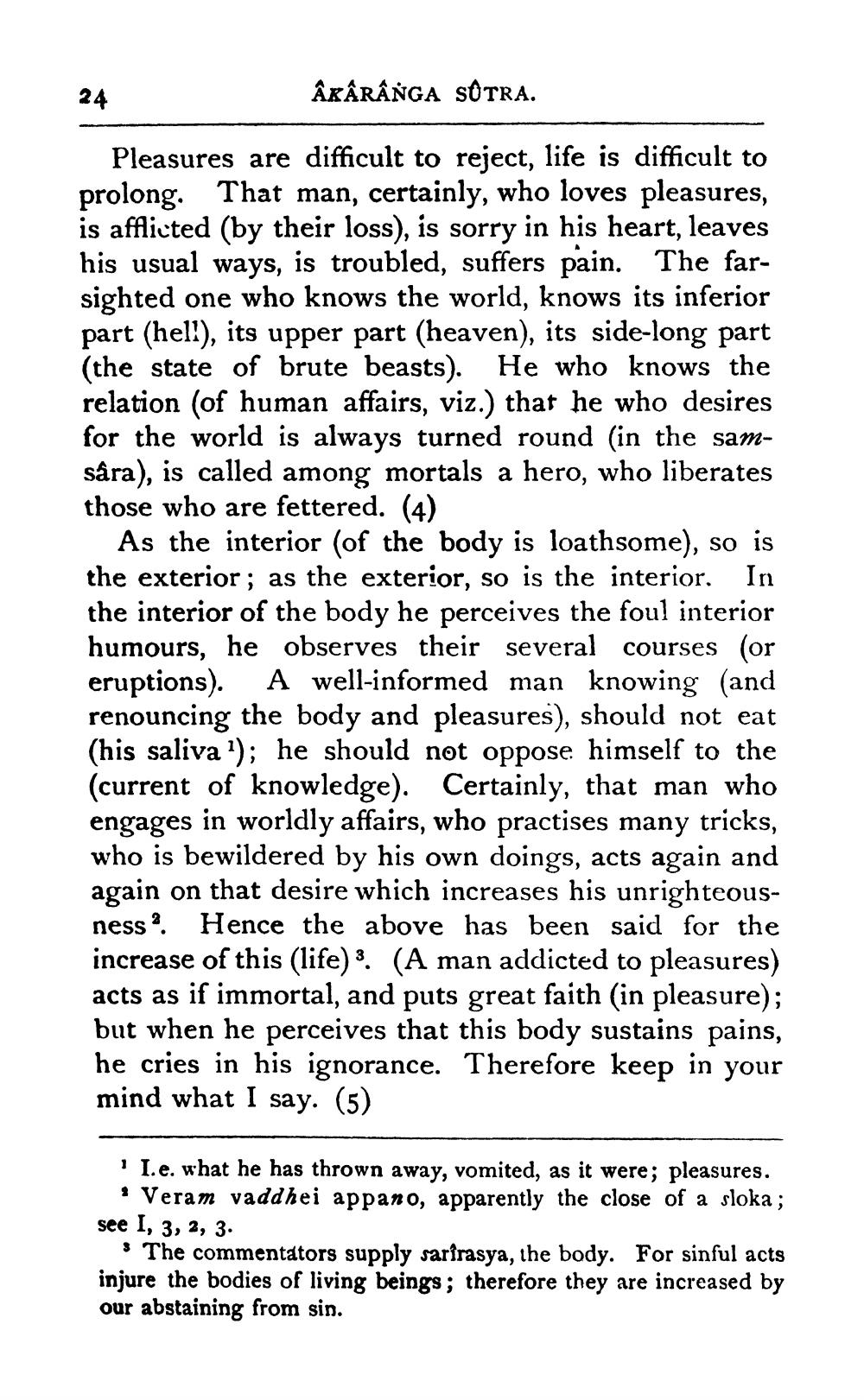________________
ÂRÂRÂNGA SÚTRA.
24
Pleasures are difficult to reject, life is difficult to prolong. That man, certainly, who loves pleasures, is afflicted (by their loss), is sorry in his heart, leaves his usual ways, is troubled, suffers pain. The farsighted one who knows the world, knows its inferior part (hel!), its upper part (heaven), its side-long part (the state of brute beasts). He who knows the relation (of human affairs, viz.) that he who desires for the world is always turned round (in the samsâra), is called among mortals a hero, who liberates those who are fettered. (4)
As the interior (of the body is loathsome), so is the exterior; as the exterior, so is the interior. In the interior of the body he perceives the foul interior humours, he observes their several courses (or eruptions). A well-informed man knowing (and renouncing the body and pleasures), should not eat (his saliva ?); he should not oppose himself to the (current of knowledge). Certainly, that man who engages in worldly affairs, who practises many tricks, who is bewildered by his own doings, acts again and again on that desire which increases his unrighteousness. Hence the above has been said for the increase of this life) 3. (A man addicted to pleasures) acts as if immortal, and puts great faith (in pleasure); but when he perceives that this body sustains pains, he cries in his ignorance. Therefore keep in your mind what I say. (5)
I.e. what he has thrown away, vomited, as it were; pleasures. • Veram vaddhei appano, apparently the close of a sloka; see I, 3, 2, 3.
* The commentators supply sarirasya, the body. For sinful acts injure the bodies of living beings; therefore they are increased by our abstaining from sin.




